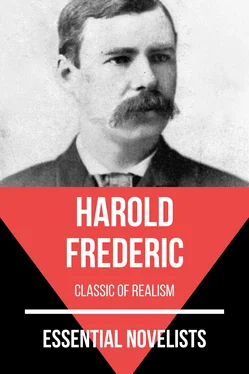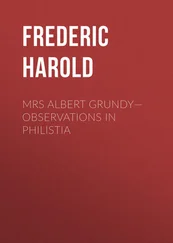Little James Lynch, unlike so many of his luckier brothers and cousins, got neither a peerage nor a gentle breeding. Instead he was reared meagrely, if not harshly, under the maternal roof and name, until he grew old enough to realize that he was on an island where bad birth is not forgiven, even if the taint be royal. Then he ran away, reached the coast of France, and made his way to the French court, where his father was now, and properly enough, an exile. He was a fine youth, with a prompt tongue and clever head, and some attention was finally shown him. They gave him a sword and a company, and he went with the French through all the wars of Marlborough, gaining distinction, and, what is more, a fat purse.
With his money he returned to Ireland, wedded a maid of whom he had dreamed during all his exile, and settled down there to beggar himself in a life of bibulous ease, gaming, fox-hunting, and wastefulness generally. After some years the wife died, and James Lynch drifted naturally into the conspiracy which led to the first rising for the Pretender, involving himself as deeply as possible, and at its collapse flying once more to France, never to return.
He bore with him this time a son of eight years—my Mr. Stewart. This boy, called Thomas, was reared on the skirts of the vicious French court, now in a Jesuit school, now a poor relation in a palace, always reflecting in the vicissitudes of his condition the phases of his sire's vagrant existence. Sometimes this father would be moneyed and prodigal, anon destitute and mean, but always selfish to the core, and merrily regardless alike of canons and of consequences. He died, did this adventurous gentleman, in the very year which took off the first George in Hanover, and left his son a very little money, a mountain of debts, and an injunction of loyalty to the Stewarts.
Young Thomas, then nearly twenty, thought much for a time of becoming a priest, and was always a favorite with the British Jesuits about Versailles, but this in the end came to nothing. He abandoned the religious vocation, though not the scholar's tastes, and became a soldier, for the sake of a beautiful face which he saw once when on a secret visit to England. He fell greatly in love, and ventured to believe that the emotion was reciprocated. As Jacob served Laban for his daughter, so did Tom Lynch serve the Pretender's cause for the hope of some day returning, honored and powerful, to ask the hand of that sweet daughter of the Jacobite gentleman.
One day there came to him at Paris, to offer his sword to the Stewarts, a young Irish gentleman who had been Tom's playmate in childhood—Anthony Cross. This gallant, fresh-faced, handsome youth was all ablaze with ardor; he burned to achieve impossible deeds, to attain glory at a stroke. He confessed to Tom over their dinner, or the wine afterward perhaps, that his needs were great because Love drove. He was partly betrothed to the daughter of an English Jacobite—yet she would marry none but one who had gained his spurs under his rightful king. They drank to the health of this exacting, loyal maiden, and Cross gave her name. Then Tom Lynch rose from the table, sick at heart, and went away in silence.
Cross never knew of the hopes and joys he had unwittingly crushed. The two young men became friends, intimates, brothers, serving in half the lands of Europe side by side. The maiden, an orphan now, and of substance and degree, came over at last to France, and Lynch stood by, calm-faced, and saw her married to his friend. She only pleasantly remembered him; he never forgot her till his death.
Finally, in 1745, when both men were nearing middle age, the time for striking the great blow was thought to have arrived. The memory of Lynch's lineage was much stronger with the romantic young Pretender of his generation than had been the rightfully closer tie between their more selfish fathers, and princely favor gave him a prominent position among those who arranged that brilliant melodrama of Glenfinnan and Edinburgh and Preston Pans, which was to be so swiftly succeeded by the tragedy of Culloden. The two friends were together through it all—in its triumph, its disaster, its rout—but they became separated afterward in the Highlands, when they were hiding for their lives. Cross, it seems, was able to lie secure until his wife's relatives, through some Whig influence, I know not what, obtained for him amnesty first, then leave to live in England, and finally a commission under the very sovereign he had fought. His comrade, less fortunate, at least contrived to make way to Ireland and then to France. There, angered and chagrined at unjust and peevish rebukes offered him, he renounced the bad cause, took the name of Stewart, and set sail to the New World.
This was my patron's story, as I gathered it in later years, and which perhaps I have erred in bringing forward here among my childish recollections. But, it seems to belong in truth much more to this day on which, for the first and last time I beheld Major Cross, than to the succeeding period when his son became an actor in the drama of my life.
The sun was now well up in the sky, and the snow was melting. While I still moodily eyed my young enemy and wondered how I should go about to acquit myself of the task laid upon me—to play with him—he solved the question by kicking into the moist snow with his boots and calling out:
"Aha! we can build a fort with this, and have a fine attack. Bob, make me a fort!"
Seeing that he bore no malice, my temper softened toward him a little, and I set to helping the negro in his work. There was a great pile of logs in the clearing close to the house, and on the sunny side near this the little girl was placed, in a warm, dry spot; and here we two, with sticks and balls of snow, soon reared a mock block-house. The English boy did no work, but stood by and directed us with enthusiasm. When the structure was to his mind, he said:
"Now we will make up some snowballs, and have an attack I will be the Englishman and defend the fort; you must be the Frenchman and come to drive me out. You can have Bob with you for a savage, if you like; only he must throw no balls, but stop back in the woods and whoop. But first we must have some hard balls made, so that I may hit you good when you come up.—Bob, help this boy make some balls for me!"
Thus outlined, the game did not attract me. I did not so much mind doing his work for him, since he was company, so to speak, but it did go against my grain to have to manufacture the missiles for my own hurt.
"Why should I be the Frenchman?" I said, grumblingly. "I am no more a Frenchman than you are yourself."
"You're a Dutchman, then, and it's quite the same," he replied. "All foreigners are the same."
"It is you who are the foreigner," I retorted with heat. "How can I be a foreigner in my own country, here where I was born?"
He did not take umbrage at this, but replied with argument: "Why, of course you're a foreigner. You wear an apron, and you are not able to even speak English properly."
This reflection upon my speech pained even more than it nettled me. Mr. Stewart had been at great pains to teach me English, and I had begun to hope that he felt rewarded by my proficiency. Years afterward he was wont to laughingly tell me that I never would live long enough to use English correctly, and that as a boy I spoke it abominably, which I dare say was true enough. But just then my childish pride was grievously piqued by Philip's criticism.
"Very well, I'll be on the outside, then," I said. "I won't be a Frenchman, but I'll come all the same, and do you look out for yourself when I do come," or words to that purport.
We had a good, long contest over the snow wall. I seem to remember it all better than I remember any other struggle of my life, although there were some to come in which existence itself was at stake, but boys' mimic fights are not subjects upon which a writer may profitably dwell. It is enough to say that he defended himself very stoutly, hurling the balls which Bob had made for him with great swiftness and accuracy, so that my head was sore for a week. But my blood was up, and at last over the wall I forced my way, pushing a good deal of it down as I went, and, grappling him by the waist, wrestled with and finally threw him. We were both down, with our faces in the snow, and I held him tight. I expected that he would be angry, and hot to turn the play into a real fight; but he said instead, mumbling with his mouth full of snow:
Читать дальше












